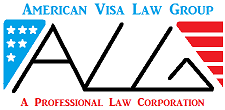Our law firm regularly handles J-1 exchange visitor visa applications. We provide this guide which goes over typically asked questions such as visa requirements and more.
What is a J-1 Exchange Visitor Visa and who Qualifies?
click here to read moreThe J1 visa is a non-immigrant visa that is issued to foreign nationals who wish to participate in work-and-study-based exchange visitor programs in the United States. This visa is designed to promote cultural exchange and international cooperation, and it is available to a wide range of individuals who meet the eligibility requirements. Here’s what you need to know about the J1 visa:
Eligibility: To qualify for a J1 visa, you must be accepted into an approved exchange visitor program, which can include educational and cultural exchange programs, research programs, or training programs. The specific requirements vary depending on the program, but generally, participants must demonstrate proficiency in English, have sufficient financial support, and intend to return to their home country after completing the program.
Application Process: To apply for a J1 visa, you must first apply and be accepted into an approved exchange visitor program. Once accepted, you will receive a DS-2019 form, which you will need to submit along with your J1 visa application to the US Department of State (DOS). You may also be required to attend an interview at a US embassy or consulate in your home country. The US Citizenship and Immigration Services (USCIS) is responsible for adjudicating J1 visa applications.
Duration: The duration of a J1 visa varies depending on the program. For example, educational and cultural exchange programs can last up to two years, while research or training programs can last up to five years. Participants may also be eligible for a grace period of up to 30 days after the program end date to allow for travel and preparation to return home.
Restrictions: There are some restrictions on the J1 visa. For example, participants are not allowed to work outside of their approved exchange visitor program without authorization, and they are required to return to their home country for at least two years after completing their program before they are eligible for certain types of US visas.
In conclusion, the J1 visa provides an excellent opportunity for foreign nationals to participate in cultural exchange and educational programs in the United States. If you are interested in applying for a J1 visa, be sure to carefully review the eligibility requirements and application process, and seek the assistance of an immigration attorney or other qualified professional if needed.
Sources:
- “Exchange Visitor Visas” (US Department of State) – https://travel.state.gov/content/travel/en/us-visas/other-visa-categories/exchange.html
- “J-1 Visa” (USCIS) – https://www.uscis.gov/working-in-the-united-states/temporary-workers/j-1-exchange-visitors/j-1-visa
- “J-1 Exchange Visitor Program” (Bureau of Educational and Cultural Affairs) – https://j1visa.state.gov/

J-1 Required Documents
click here to read moreIf you are planning to apply for a J-1 visa, it is important to be aware of the required documents and checklist to ensure a smooth and successful application process. Here are some of the essential documents that you will need to provide:
- DS-2019 Form: This is the most important document required for a J-1 visa application. It is issued by your sponsoring organization or institution and confirms your eligibility for the J-1 visa program. You must present this form to the US embassy or consulate when applying for your J-1 visa.
- Passport: You must have a valid passport that is valid for at least six months beyond your intended stay in the United States. It is important to ensure that your passport is not damaged or expired before applying for your J-1 visa.
- Application Form: You will need to complete a non-immigrant visa application form (DS-160) online and print out the confirmation page. This form contains your personal information, including your travel plans and contact details.
- Visa Application Fee: You will be required to pay a non-refundable visa application fee before your application can be processed. The fee varies depending on your country of citizenship and the type of visa you are applying for.
- SEVIS Fee: You will also be required to pay a SEVIS (Student and Exchange Visitor Information System) fee before your application can be processed. This fee is used to support the administration of the J-1 visa program.
- Financial Support Documents: You will need to provide evidence of sufficient financial support to cover your expenses during your stay in the United States. This may include bank statements, scholarship awards, or financial guarantee letters from your sponsoring organization or institution.
- English Language Proficiency: You may be required to demonstrate your proficiency in English by submitting scores from a recognized English language test, such as the TOEFL or IELTS.
In conclusion, the J-1 visa application process requires careful attention to detail and the submission of several required documents. By following the checklist provided by USCIS and other similar sources, you can ensure that your application is complete and meets all the necessary requirements for a successful outcome.
Sources:
-
- “J-1 Exchange Visitor Program” (USCIS) – https://www.uscis.gov/working-in-the-united-states/temporary-workers/j-1-exchange-visitors/j-1-visa
- “J-1 Visa Checklist” (CIEE) – https://www.ciee.org/in-the-usa/j1-visa-checklist
- “J-1 Visa Application Process” (US Department of State) – https://travel.state.gov/content/travel/en/us-visas/other-visa-categories/exchange/j-1-exchange-visa.html

Interesting J-1 Visa Statistics and Facts
click here to read moreThe J-1 visa is a non-immigrant visa that allows foreign nationals to participate in educational and cultural exchange programs in the United States. Here are some interesting statistics and facts about the J-1 visa:
- The J-1 visa program is the largest educational and cultural exchange program in the world, with over 300,000 participants annually.
- J-1 visa holders come from more than 200 countries and participate in a wide variety of exchange programs, including internships, work and travel, and teacher exchanges.
- The J-1 visa program is administered by the U.S. Department of State’s Bureau of Educational and Cultural Affairs, which works with a network of public and private organizations to sponsor exchange programs.
- In recent years, the J-1 visa program has faced criticism for alleged abuses, including instances of exploitation of workers and concerns about the program’s impact on U.S. workers.
- US presidents, including President Trump and President Biden, have made statements about the J-1 visa program. President Trump signed an executive order in 2020 that suspended the entry of certain J-1 visa holders in response to the COVID-19 pandemic. President Biden has pledged to restore and expand the J-1 visa program.
- In 2021, the J-1 visa program was suspended for certain categories of participants, including those participating in the Summer Work Travel program.
- According to a survey conducted by the U.S. Department of State, 92% of J-1 visa participants reported that their exchange program had a positive impact on their personal and professional development.
In conclusion, the J-1 visa program is a vital component of international educational and cultural exchange, providing opportunities for individuals from around the world to engage in meaningful exchanges and expand their horizons. While the program has faced criticism and challenges in recent years, its continued success and expansion remains a priority for many policymakers.
Sources:
- “J-1 Visa Exchange Visitor Program” (U.S. Department of State) – https://j1visa.state.gov/
- “The Impact of International Exchange Programs” (U.S. Department of State) – https://j1visa.state.gov/impact/
- “Trump suspends certain visas till year end; H-1B, J1 visa holders to be hit” (The Economic Times) – https://economictimes.indiatimes.com/nri/visa-and-immigration/trump-suspends-certain-visas-till-year-end-h-1b-j1-visa-holders-to-be-hit/articleshow/76537921.cms
- “Biden unveils immigration plan that would restore the J-1 visa program” (NBC News) – https://www.nbcnews.com/news/us-news/biden-unveils-immigration-plan-would-restore-j-1-visa-program-n1253262
- “State Department cancels J-1 visas for summer work travel program in 2021” (CNN) – https://www.cnn.com/2021/04/01/politics/j-1-visa-state-department/index.html
Should You Hire an Immigration Lawyer to Prepare Your J-1 Waiver Case and What Types of Waivers are Available?
click here to read moreGetting the J-1 visa itself is rarely something an attorney assists with, but you will generally want to hire an attorney to handle a 2-year home residence waiver because the steps and documentary requirements may be complex. To be clear, the J-1 visa is a popular non-immigrant visa that allows individuals to come to the United States for educational and cultural exchange programs. However, some J-1 visa holders may be subject to the two-year home country physical presence requirement. This requirement means that individuals must return to their home country for at least two years before being able to apply for certain immigration benefits or change to certain nonimmigrant statuses. We’ll cover some of these categories here.
J-1 No Objection Waiver
Fortunately, there is a way for some J-1 visa holders to waive the two-year home country physical presence requirement. This is known as the No-Objection Waiver. Here is what you need to know about the J-1 No-Objection Waiver:
- Eligibility: J-1 visa holders subject to the two-year home country physical presence requirement can apply for a No-Objection Waiver if their home country’s government issues a No-Objection statement, which means they do not object to the individual staying in the United States.
- Criteria: To be eligible for a No-Objection Waiver, J-1 visa holders must show that returning to their home country for two years would result in “exceptional hardship” to a U.S. citizen or lawful permanent resident spouse or child.
- Application Process: The No-Objection Waiver application process involves submitting an application to the U.S. Department of State’s Waiver Review Division. This application requires extensive documentation and may take several months to process.
- Types of No-Objection Waivers: There are two types of No-Objection Waivers: one issued by the home country government, and one issued by a U.S. government agency.
- Benefits: Obtaining a No-Objection Waiver allows J-1 visa holders to change to another non-immigrant status or apply for permanent residency in the United States without returning to their home country for two years.
It is important to note that not all J-1 visa holders are eligible for a No-Objection Waiver, and the application process can be lengthy and complex. It is highly recommended that individuals seeking a No-Objection Waiver consult with an experienced immigration attorney to navigate the process.
Sources:
- “Exchange Visitors (J-1)” (U.S. Department of State) – https://travel.state.gov/content/travel/en/us-visas/visa-information-resources/all-visa-categories/exchange-visitors.html
- “J-1 Waivers” (U.S. Citizenship and Immigration Services) – https://www.uscis.gov/working-in-the-united-states/temporary-workers/j-1-exchange-visitors/j-1-waivers
- “J-1 Visa Waiver Application: Instructions for Form DS-3035” (U.S. Department of State) – https://travel.state.gov/content/travel/en/us-visas/visa-information-resources/forms/ds-3035-instructions.html
- “No Objection Statement” (U.S. Department of State) – https://travel.state.gov/content/travel/en/us-visas/visa-information-resources/forms/no-objection-statement.html
Hardship Waiver
Here is what you need to know about the J-1 hardship waiver:
- Eligibility: J-1 visa holders subject to the two-year home country physical presence requirement can apply for a hardship waiver if returning to their home country for two years would result in exceptional hardship.
- Criteria: To be eligible for a hardship waiver, J-1 visa holders must demonstrate that returning to their home country for two years would result in exceptional hardship to themselves or to their U.S. citizen or lawful permanent resident spouse or child. Exceptional hardship may include medical or financial hardship, political or religious persecution, or other extraordinary circumstances.
- Application Process: The hardship waiver application process involves submitting an application to the U.S. Department of State’s Waiver Review Division. This application requires extensive documentation, including evidence of the exceptional hardship, and may take several months to process.
- Types of Hardship Waivers: There are two types of hardship waivers: the Interested Government Agency waiver and the Persecution waiver. The Interested Government Agency waiver requires a U.S. government agency to request the waiver on behalf of the J-1 visa holder. The Persecution waiver is available to individuals who would face persecution in their home country if they were to return.
- Benefits: Obtaining a hardship waiver allows J-1 visa holders to change to another nonimmigrant status or apply for permanent residency in the United States without returning to their home country for two years.
It is important to note that the J-1 hardship waiver is only available in limited circumstances and requires extensive documentation to prove the exceptional hardship. It is highly recommended that individuals seeking a hardship waiver consult with an experienced immigration attorney to navigate the process.
Sources:
- “J-1 Visa Waiver Application: Instructions for Form DS-3035” (U.S. Department of State) – https://travel.state.gov/content/travel/en/us-visas/visa-information-resources/forms/ds-3035-instructions.html
- “No Objection Statement” (U.S. Department of State) – https://travel.state.gov/content/travel/en/us-visas/visa-information-resources/forms/no-objection-statement.html
- “J-1 Visa Waiver Based on Exceptional Hardship” (Murthy Law Firm) – https://www.murthy.com/2018/01/17/j-1-visa-waiver-based-on-exceptional-hardship/
Persecution Waiver
Here is what you need to know about the J-1 persecution waiver:
- Eligibility: J-1 visa holders who would face persecution in their home country due to their race, religion, nationality, political opinion, or membership in a particular social group may be eligible for a persecution waiver.
- Criteria: To be eligible for a persecution waiver, individuals must demonstrate that they would face persecution if they were to return to their home country. Persecution can include physical harm, psychological harm, or other serious harm, such as economic harm or severe discrimination.
- Application Process: To apply for a persecution waiver, individuals must submit Form DS-3035, along with supporting documentation, to the Waiver Review Division of the U.S. Department of State. The application process can take several months to complete, and there is no guarantee that a waiver will be granted.
- No Objection Statement: In some cases, individuals may also need to obtain a “No Objection Statement” from their home country government. This statement indicates that the home country government does not object to the waiver request.
- Benefits: Obtaining a J-1 persecution waiver allows individuals to apply for adjustment of status to permanent residency in the United States without having to return to their home country for two years.
It is important to note that the J-1 persecution waiver is only available in limited circumstances and requires extensive documentation to prove that the individual would face persecution if they were to return to their home country. It is highly recommended that individuals seeking a persecution waiver consult with an experienced immigration attorney to navigate the process.
Conrad-30 Waiver
The Conrad 30 J-1 waiver program is a program that allows foreign medical graduates to obtain a waiver of the two-year home residency requirement that is typically attached to their J-1 visas. The Conrad 30 program was established in 1994 to address the shortage of physicians in underserved areas of the United States. Here is what you need to know about the Conrad 30 J-1 waiver:
- Eligibility: The Conrad 30 program is available to J-1 visa holders who have completed a medical residency in the United States and who have a job offer to work in a designated shortage area. The program is limited to physicians who work in primary care or mental health.
- Criteria: To be eligible for a Conrad 30 waiver, physicians must agree to work full-time in a designated shortage area for at least three years. The shortage area must be designated by the U.S. Department of Health and Human Services (HHS) as a Health Professional Shortage Area (HPSA), a Medically Underserved Area (MUA), or a Mental Health Professional Shortage Area (MHPSA).
- Application Process: To apply for a Conrad 30 waiver, physicians must first obtain a job offer from a health care facility in a designated shortage area. The facility must then apply to the state health department for a J-1 waiver on behalf of the physician. The state health department will recommend up to 30 physicians for a waiver each year.
- Benefits: Obtaining a Conrad 30 waiver allows physicians to apply for adjustment of status to permanent residency in the United States without having to return to their home country for two years. The waiver is granted for a period of three years, during which time the physician must work full-time in the designated shortage area.
- Limitations: The Conrad 30 program is limited to 30 waivers per state per year, and many states have waiting lists for the program. Physicians must also be aware of the strict requirements for maintaining their J-1 status and obtaining the waiver.
The Conrad 30 J-1 waiver program is a valuable tool for addressing the shortage of physicians in underserved areas of the United States. However, the application process can be complex and time-consuming, and physicians must be aware of the limitations and requirements of the program. It is highly recommended that physicians seeking a Conrad 30 waiver consult with an experienced immigration attorney to navigate the process.
Sources:
- “Conrad 30 Waiver Program” (U.S. Department of State) – https://travel.state.gov/content/travel/en/us-visas/immigrate/conrad-30-waiver-program.html
- “J-1 Waivers for Physicians” (U.S. Citizenship and Immigration Services) – https://www.uscis.gov/working-in-the-united-states/temporary-workers/j-1-exchange-visitors/j-1-waivers-for-physicians
- “Conrad 30 J-1 Visa Waiver Program” (Health Resources & Services Administration) – https://bhw.hrsa.gov/loans-scholarships/j-1-visa-waiver/conrad-30-j-1-visa-waiver-program
Interested Government Agency (IGA) Waiver
The IGA J-1 waiver is a type of waiver available for J-1 visa holders who have completed their exchange program in the United States and wish to remain in the country. IGA stands for Interested Government Agency, which refers to a U.S. federal or state government agency that is interested in hiring the J-1 visa holder.
To be eligible for an IGA J-1 waiver, the J-1 visa holder must have a job offer from an IGA that requires their specialized skills or knowledge. The IGA must also provide a statement that explains why they are interested in hiring the J-1 visa holder and why their skills or knowledge are critical to their operations.
The IGA J-1 waiver program was established to help address shortages of skilled workers in certain areas, such as healthcare, agriculture, and education. By allowing J-1 visa holders to remain in the United States and work for an IGA, the program helps to fill these shortages and support important government operations.
The process for obtaining an IGA J-1 waiver involves several steps. First, the J-1 visa holder must find a job offer from an IGA that meets the eligibility requirements. They must then apply for a waiver through the U.S. Department of State’s Waiver Review Division. If the waiver is approved, the J-1 visa holder may apply for a change of status or an extension of their current status to continue working for the IGA.
It is important to note that the IGA J-1 waiver program is highly competitive, and there are only a limited number of waivers available each year. Additionally, the program is subject to change based on the needs and priorities of the U.S. government.
In conclusion, the IGA J-1 waiver is a valuable option for J-1 visa holders who have completed their exchange program and wish to remain in the United States to work for an Interested Government Agency. While the process for obtaining a waiver can be complex and competitive, it can provide a pathway to fulfilling and important employment opportunities in the United States.

Reasonable Attorney Fees for a J-1 Waiver Application?
Our firm handles J-1 Waiver applications at highly competitive rates. Click here to reach our legal fee schedule.
Contact Us
To discuss J-1 waiver applications with an experienced immigration attorney from the American Visa Law Group, feel free click the contact us tab and fill out the inquiry form or call us at 510-500-1155.
Blog Articles
Pending.

